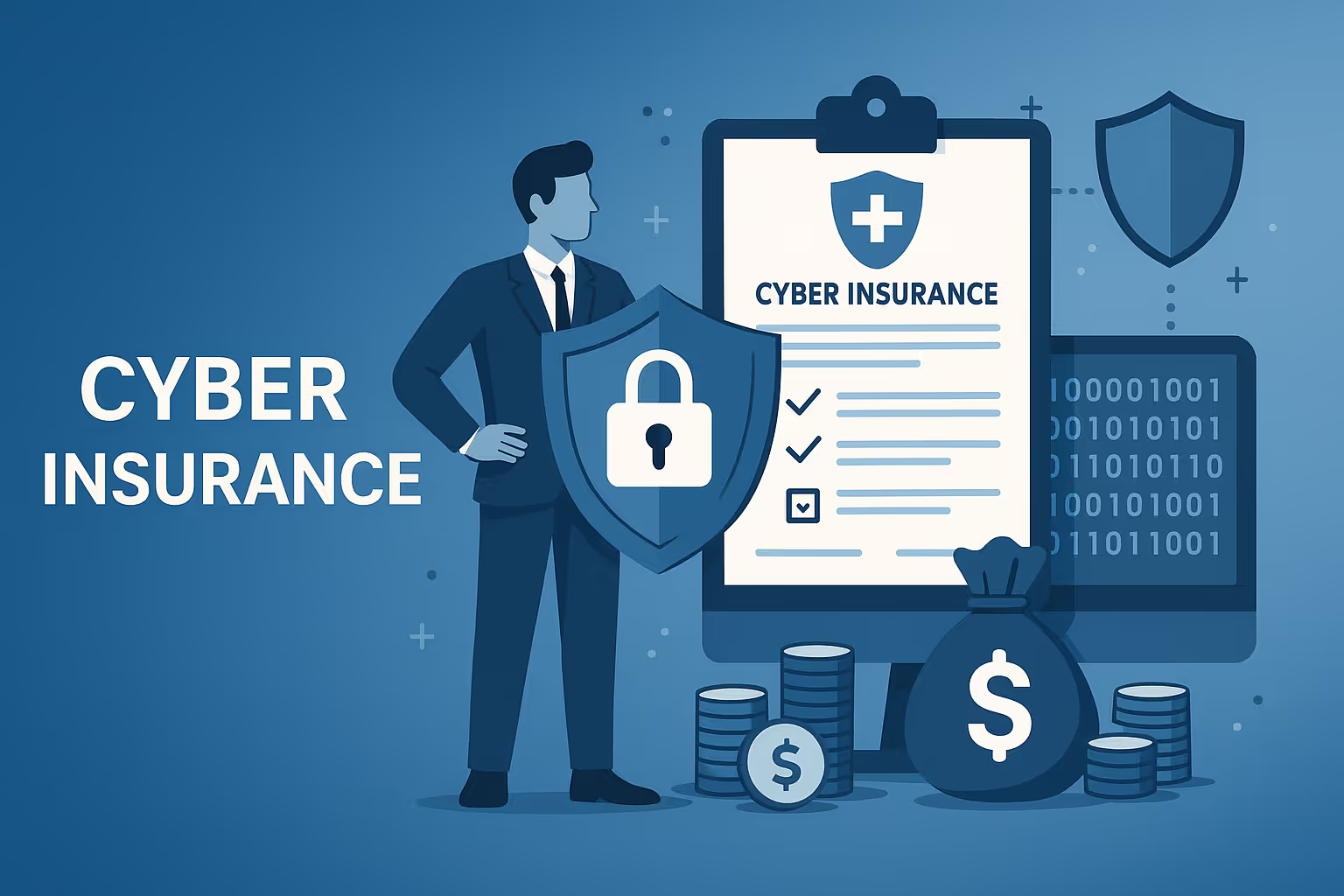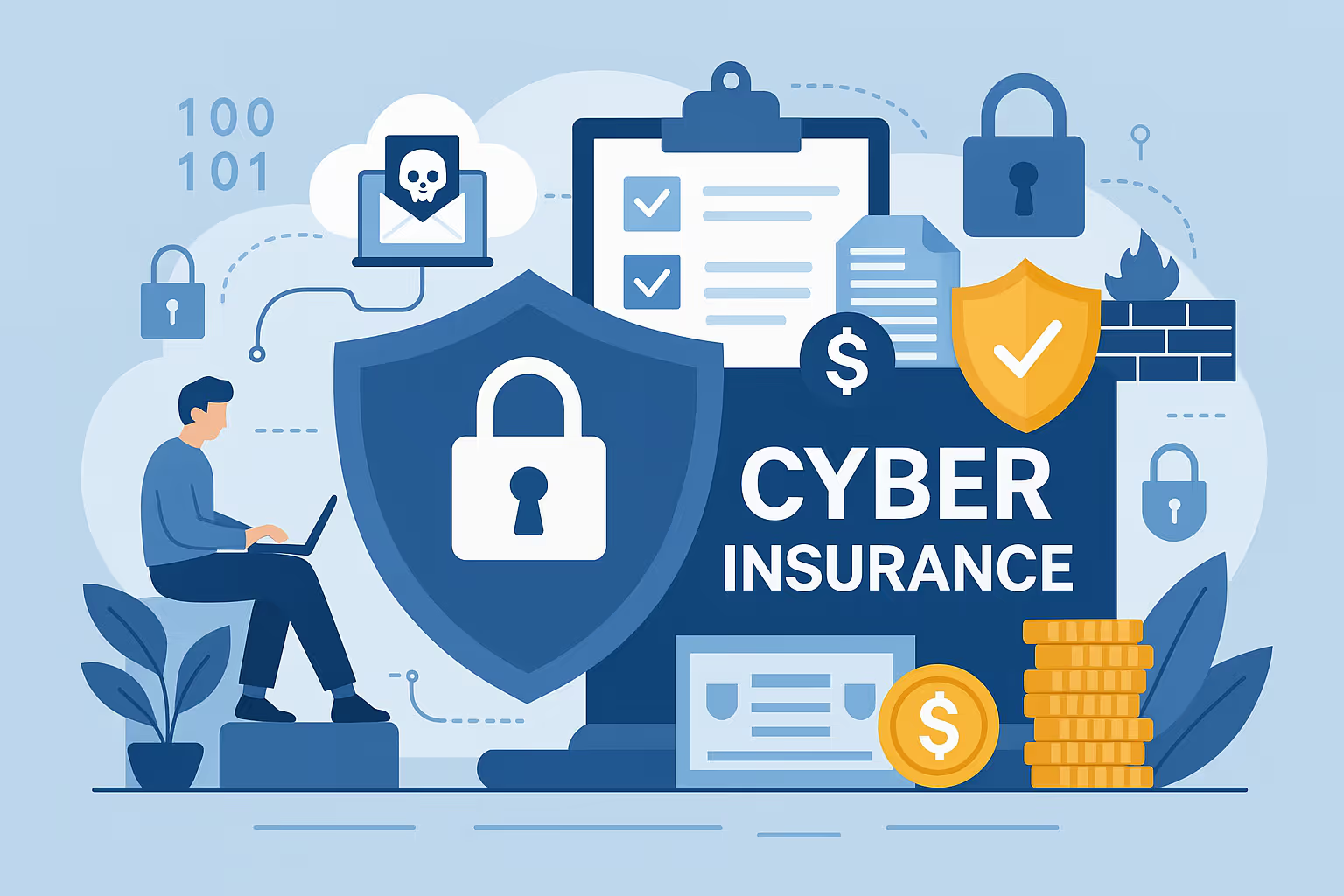
How to get...
This systematic approach, emphasizing assessments, documentation, and industry-specific needs, will help your organization successfully obtain robust cyber insurance coverage while ensuring compliance and financial protection.

Who provides...
When evaluating these cyber insurance for Pharmaceutical / Biotech / Medical Devices, organizations should focus on factors such as:
This detailed yet concise approach helps organizations in the Pharmaceutical, Biotech, and Medical Devices sector make informed decisions when choosing the right cyber insurance provider.


Why need...
Cyber insurance not only helps cover financial losses and legal costs that arise from data breaches and business interruptions but also provides access to expert incident response teams. This support is essential for efficient recovery and continuity of operations. Moreover, businesses that invest in cyber insurance for Pharmaceutical / Biotech / Medical Devices often benefit from improved risk management practices and enhanced overall cybersecurity posture, making it a vital risk mitigation tool for this critical industry.
Cyber insurance coverage for Pharmaceutical / Biotech / Medical Devices that includes Data Breach and Privacy Liability protects organizations against the costs associated with unauthorized access to sensitive health records, proprietary data, and patient information. This coverage typically addresses expenses such as:
This coverage is critical for the Pharmaceutical, Biotech, and Medical Devices sectors in the U.S. because breaches can lead to significant loss of intellectual property, regulatory scrutiny, and damaged reputations, which in turn affect operations, investor confidence, and compliance with HIPAA and other privacy laws.
Cyber insurance coverage for Pharmaceutical / Biotech / Medical Devices under Business Interruption protects against revenue loss and extra expense during downtime caused by cyber incidents. It covers issues such as:
This coverage matters as production delays or research interruptions can lead to substantial financial loss and missed market opportunities, directly impacting operational resiliency and compliance with manufacturing and regulatory timelines.
Cyber insurance coverage for Pharmaceutical / Biotech / Medical Devices that includes Cyber Extortion and Ransomware addresses the risks of attackers demanding ransom to prevent the release of critical data or to restore systems. It typically provides:
This coverage is crucial because cyber extortion incidents can halt research, steal sensitive test data, and compromise regulatory submissions, posing risks to both financial security and long-term operational integrity.
Cyber insurance coverage for Pharmaceutical / Biotech / Medical Devices with Regulatory Defense & Fines offers protection against costs arising from investigations, defense fees, and fines resulting from data breaches or cyber incidents. It covers aspects such as:
This coverage is essential in a highly regulated industry where compliance is mandatory. It helps mitigate the financial burden of regulatory fines and ensures that organizations can maintain robust compliance frameworks and safeguard their operational integrity.
Build Security with OCD Tech That Meets the Standard — and Moves You Forward
Contact Us
Cyber insurance shields U.S. pharma, biotech & med device firms' IP & patient data. Underwriting evaluates risk. Controls cut breach costs.
Secure Your Business with Expert Cybersecurity & Compliance Today
Contact Us


Differences by State...
Organizations in the Pharmaceutical / Biotech / Medical Devices sector must navigate state-specific requirements when purchasing cyber insurance for Pharmaceutical / Biotech / Medical Devices. These requirements affect coverage scope, compliance, premiums, and risk management strategies, making it essential to understand distinctions among states.
These state differences impact the evaluation, purchase, and maintenance of cyber insurance policies in several ways:
For companies in this sector, understanding these regional nuances is vital for balancing effective risk management with affordable and comprehensive cyber insurance coverage.

Compliance & Frameworks...
For companies seeking cyber insurance for Pharmaceutical / Biotech / Medical Devices, adhering to the right compliance frameworks is critical to ensure regulatory requirements are met and to secure favorable underwriting terms. Key frameworks and regulations include:
These frameworks and regulations play a significant role in shaping cyber insurance policies by impacting underwriting requirements and premium costs. Insurers often evaluate the extent to which these standards are met in order to reduce risk exposure and tailor cyber insurance coverage accordingly. Ensuring compliance in these areas not only protects sensitive research, patient data, and intellectual property but also strengthens overall cybersecurity defenses, resulting in lower risks and more competitive insurance premiums.

Audit. Security. Assurance.
IT Audit | Cybersecurity | IT Assurance | IT Security Consultants – OCD Tech is a technology consulting firm serving the IT security and consulting needs of businesses in Boston (MA), Braintree (MA) and across New England. We primarily serve Fortune 500 companies including auto dealers, financial institutions, higher education, government contractors, and not-for-profit organizations with SOC 2 reporting, CMMC readiness, IT Security Audits, Penetration Testing and Vulnerability Assessments. We also provide dark web monitoring, DFARS compliance, and IT general controls review.
Contact Info
.svg)
OCD Tech
.svg)
25 BHOP, Suite 407, Braintree MA, 02184
.svg)
844-623-8324
.svg)
https://ocd-tech.com
Follow Us
Videos
Check Out the Latest Videos From OCD Tech!
Services
SOC Reporting Services
– SOC 2 ® Readiness Assessment
– SOC 2 ®
– SOC 3 ®
– SOC for Cybersecurity ®
IT Advisory Services
– IT Vulnerability Assessment
– Penetration Testing
– Privileged Access Management
– Social Engineering
– WISP
– General IT Controls Review
IT Government Compliance Services
– CMMC
– DFARS Compliance
– FTC Safeguards vCISO